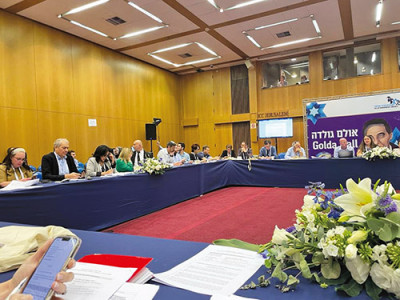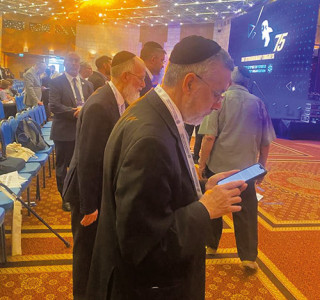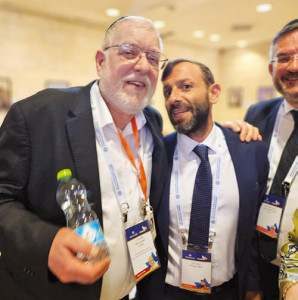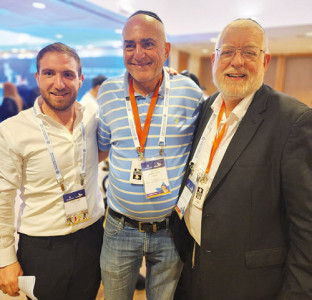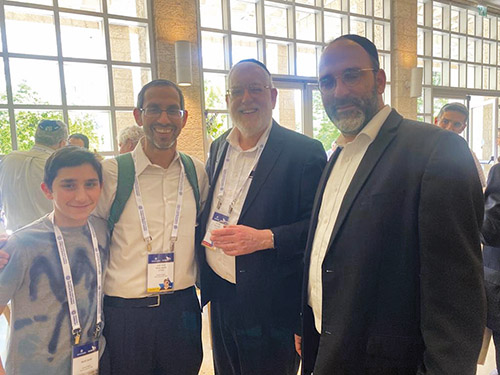
As a delegate to the World Zionist Congress, I entered the halls of Jerusalem with hope and enthusiasm. I looked forward to engaging in healthy and constructive discussions on pressing issues that affect Israel and Zionism. Little did I know that I would soon find myself caught in the crossfire of a divisive and unproductive Congress, ultimately forced to take a side in a bitter ideological battle.
While the opposing factions roared out “Bush, Busha” from the above us, all I could think was that the real Busha (shame) lies in the fact that the same bloc, driven by its crusade for social justice, felt compelled to inject controversial topics into the discourse. These topics were not in line with the spirit of the Congress or the World Zionist Organization (WZO) charter and not what we were here for. In any event this situation left me, and many other delegates, in a challenging position, torn between our commitment to the core principles of Zionism and our desire to be respectful and accommodating of others’ views.
The World Zionist Congress has a storied history of debating relevant issues that concern Israel and the Jewish people. Established in 1897 by Theodor Herzl, the founder of modern Zionism, the Congress has always convened delegates from around the world, representing diverse geographic regions and ideologies. In the past, these discussions have been informative, respectful, and ultimately aimed at advancing the mission of the WZO.
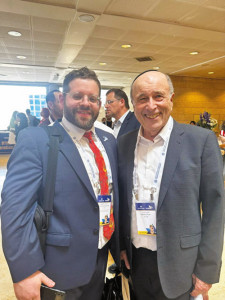
However, this year’s Congress devolved into chaos as progressives pushed resolutions that were divisive and unrelated to the core objectives of the WZO. Never before had delegates been forced to vote on whether the WZO should condemn the Israeli government in its various platforms. As a result, we lost valuable time and opportunities to address pressing issues facing Israel and the Zionist movement, and people like me were forced to act and vote with our conscience.
The liberal progressive bloc’s insistence on introducing controversial topics and language into the discussions, such as condemnations of the Israeli government for its judicial reform aspirations, is a testament to their inability to set aside their liberal progressive agenda back home for the sake of constructive dialogue. While these topics are undoubtedly important, they were utilized to hijack a Congress focused on promoting the core principles of Zionism.
The mission of the WZO, as stated on its website, is to promote Zionism in line with the Jerusalem Program, which includes encouraging aliyah, strengthening Israel as a Jewish, Zionist and democratic state, and ensuring the continuity of the Jewish people through Jewish, Hebrew and Zionist education. The introduction of resolutions unrelated to these objectives detracts from the Congress’s purpose and only serves to deepen the divide among delegates.
As I stood amidst the shouting and flag-waving, I couldn’t help but feel a profound sense of disappointment. Just the day before I was having an engaging conversation with a young rabbinic leader from the conservative movement; while I knew that he and his wife parenthetically disagreed with my views, for a moment we were mishpacha—one family from one people. The Congress, which should have been a forum for fostering unity and advancing the Zionist cause, had become a battleground for ideological warfare. The real “Busha” lies in the fact that our collective focus was diverted from the important issues facing Israel and the Zionist movement, and instead was consumed by partisan bickering.
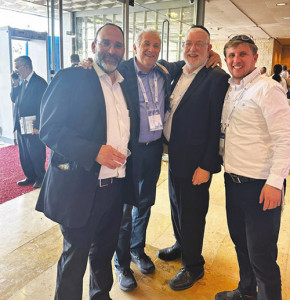
It is my sincere hope that future World Zionist Congresses will return to their roots, prioritizing the principles of Zionism and the well-being of Israel and the Jewish people. Delegates must learn to set aside their personal agendas and political affiliations for the greater good of the Zionist cause.
As a delegate, I am committed to working towards a more-inclusive and productive Congress. To achieve this, we must be mindful of the issues we raise and the discussions we engage in, ensuring that they align with the core objectives of the WZO. Partisan politics belong on our respective ballots across the globe. Only through a genuine commitment to the Zionist cause, and recommitting to this principle can move beyond the divisiveness and restore the integrity of the World Zionist Congress.
Progressives should reflect on why they allowed themselves to be swept up in a tide of divisiveness knowing all too well that new factions, like Eretz HaKodesh, would never compromise on their values. Yizhar Hess and his compatriots knew all too well that with their insistence on resolutions, chaos would ensue. Perhaps that was their point to begin with, which is the greatest “Busha” of them all.
Rabbi Yechezkel Moskowitz is a deep-tech entrepreneur as well as the president of Amariah, a grassroots and advocacy organization promoting Americanism and Zionism. He also serves as the special assistant to Cherna Moskowitz and is a delegate to the WZO on behalf of Eretz HaKodesh
